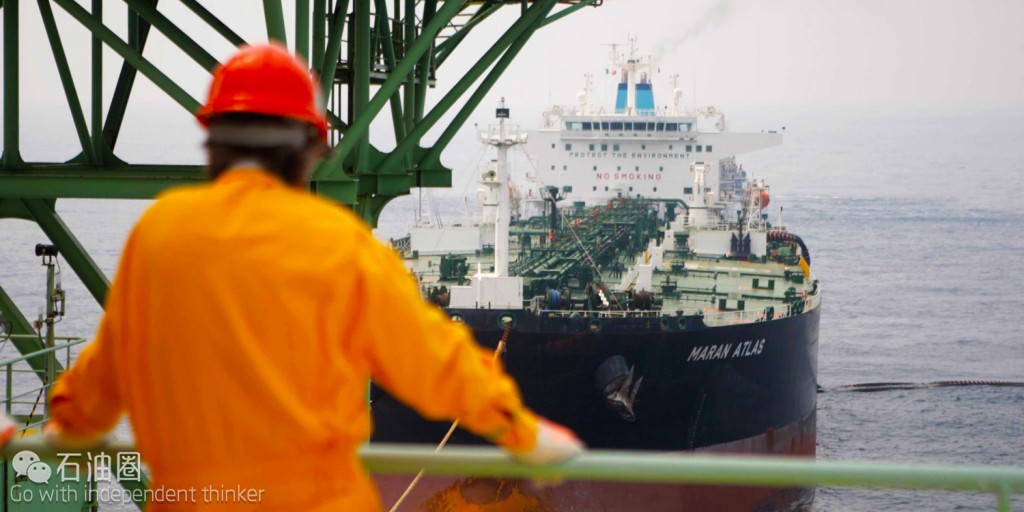The last year or more have been tough for the upstream oil & gas industry both on and offshore. There have been many actions taken to reduce operating costs and lower capital expenditure to shore up balance sheets and cash flows. Discretional spend has been cancelled, contractors then employees laid off, and resources focused on “keeping the lights on.” When commodity prices begin to increase again, so the thirst for volume will be restored and a war for talent, equipment and services will begin. The authors, like many people in the industry have experienced boom and bust cycles like this before.
However, being naturally optimistic, we also see an opportunity, perhaps an imperative, to improve the underlying business for the longer term, both making it more resilient to lows in price, but also more profitable when prices are higher. One way for operators to improve is to share resources and collaborate on common problems more than perhaps they have done in the past.
We take the view that most value is captured in the upstream by the explorers, and it’s really the job of the project team and then operations folks to safely convert that value to cash flow, while preventing as much value leakage as possible. But high oil price and hence high margins can paper over some pretty deep cracks in the performance of an operation, perhaps causing inertia and not to seek help, especially from “competitors,” despite the enormity of the prize. For example, a Ziff (now Solomon) study reported in 2013 for the deep water Gulf of Mexico (GoM) indicated an average 2012 unit operating cost of $5/boe. With more than 1 million boepd being produced in the deep water GoM, a modest 10% reduction would yield more than $180 million of value every year. A 1% increase in production efficiency would yield about $150 million of additional revenue per year, even at today’s prices.
In our experience there are a common set of problems or defects that cause production operations to leak value. A lot of our personal experience is in the deep water GoM where we have witnessed many repeat problems such as:
• Delayed/ineffective water injection
• Asphaltene blockage of wells
• Fines migration
• Failure of subsurface safety control valves
• Hydrates
• Subsea control line failure
This list highlights just a few problems, and we still haven’t got into the topsides, midstream, logistics, and warehousing! Add organizational and leadership defects in the human systems that run these operations to these “technical” defects, and there’s a lot of opportunity to improve and realize the financial prize outlined above.
As a simple example, an Endeavor consultant was offshore on an older fixed platform about two months ago. In talking with the production personnel, we found they had a full time chemicals technician on the platform that had added value by reducing chemical usage. However, they were aware of an adjacent facility owned by a different operating company who also had a full time chemical technician from the same chemical supplier. It is likely one chemical tech could handle both facilities, but to their knowledge this had not been considered by their shore base management.
We fervently believe that province by province the industry could create huge mutually beneficial value through greater collaboration. The most common examples occur when engineers and scientists get to share their work in industry forums and conferences. We’ve also seen some useful problem solving occur when operating and non-operating partners share learning between jointly owned fields with common problems. And of course, when it comes to safety the industry has a good track record of working together to improve; SafeGulf is a good example of that in the offshore US industry.
Nevertheless there’s a bigger possibility. Imagine companies coming together in an industry forum to openly share their highest priority problems, agree which defects warrant industry attention, and then assign teams made up of a mix of different company backgrounds, but heavy on experience, to systematically use a common and simple method to solve problems. The uptake of solutions within operating companies will be the responsibility of those companies, but there are also opportunities to embed improvements in the supply chain.
To test the current appetite of the industry for this kind of collaboration, Endeavor Management conducted a survey of members of the Gulf Research Panel (1) and had 84 respondents from around the world. We wanted to confirm that the industry was ready to collaborate more and begin to illuminate and prioritize the opportunities of most interest. Of the survey, 40% worked for oil & gas companies, and the remainder, for the most part, in related engineering, consultancy and equipment/service provision.
The survey found that most Gulf Research members, who are receptive to offshore operations collaboration, work for oil & gas companies, and have various operational responsibilities. Most respondents lead or frequently participate in decision-making, and many are responsible for multi-million dollar budgets. Panelists could choose multiple responses for items on which to collaborate but the greatest interest was shown in:
• Safety
• Cost Reduction
• Facilities Design
• Engineering Support
• Personnel Competence/Training
• Organization and Staffing.
Also of interest was to understand the level of existing commitment to fund the focus areas highlighted for collaboration. The survey indicates Facilities Design and Engineering Support have a strong level of collaborative interest among respondents, along with higher willingness to fund. Safety and Cost Reduction have equally high levels of interest, but willingness to fund is lower. Of course with the industry in so much stress, it’s again not surprising that there is a difference between desire to do work and the ability to fund such work. Nonetheless we are encouraged by the survey and would welcome the opportunity to continue the discussion, starting with feedback to this post.
A final note. If the prize is big in low price environments such as the present, imagine what higher prices would deliver if the mindset of problem solving to deliver lower and lower cost of supply is maintained if and when commodity prices go up. We recognize however that a certain amount of courage and an eye on the long term health of the industry will be required to invest scant resources in this lean time; however, there’s nothing like a good crisis to create a transformative change for the future of our industry.
(1) Gulf Research: a joint venture formed in 2001 between Gulf Publishing Company, publishers of World Oil and Hydrocarbon Processing, and Endeavor Management, a strategic marketing firm with broad experience in the oilfield service and equipment sector. Endeavor uses the proprietary Gulf Research database of 25,000+ oil and gas industry personnel to conduct interviews.
Collaboration is so under-utilized in the oilpatch. In my work over the years, one of my main objectives was to engage the front-line personnel (and not just the service providers) in earlier phases of both routine and major operations. While the technical teams often do an excellent job in preparing the plan for an operation, the inefficiency often comes during the execution. It follows that more engagement of the execution teams would ferret out issues associated with the well-crafted plan, give the execution team more ownership (and thus more reason to succeed), and provide a better likelihood of uncovering oversights earlier in the plan from the critical execution perspective.
For an offshore Operator who has cash, this is the time to drill exploratory wells. Costs are much lower than several years ago and it will take years to develop new finds, when the price of oil should be at a reasonable level. All Operators need to replenish reserves and this would be a great time to do so by drilling new wells (or buying properties from those who need the cash to continue operations).
Great article. If collaboration increased across companies and countries, the larger data sets would certainly uncover many solutions.
There will be issues that are currently under and over estimated by each individual crew or operator. Whilst companies guard their proprietary technology and techniques, the news soon travels anyway due to the usual mobile workforce.
The benefits for health and safety, as well as cost savings would certainly be profound. One way of addressing the situation can be on an individual level, by sharing experiences and problems in places like oilpro.com and my-spread.com.
Perhaps we shouldn’t wait for company boards to make a decision to improve, we can be individually conscientious and proactive!


 石油圈
石油圈
